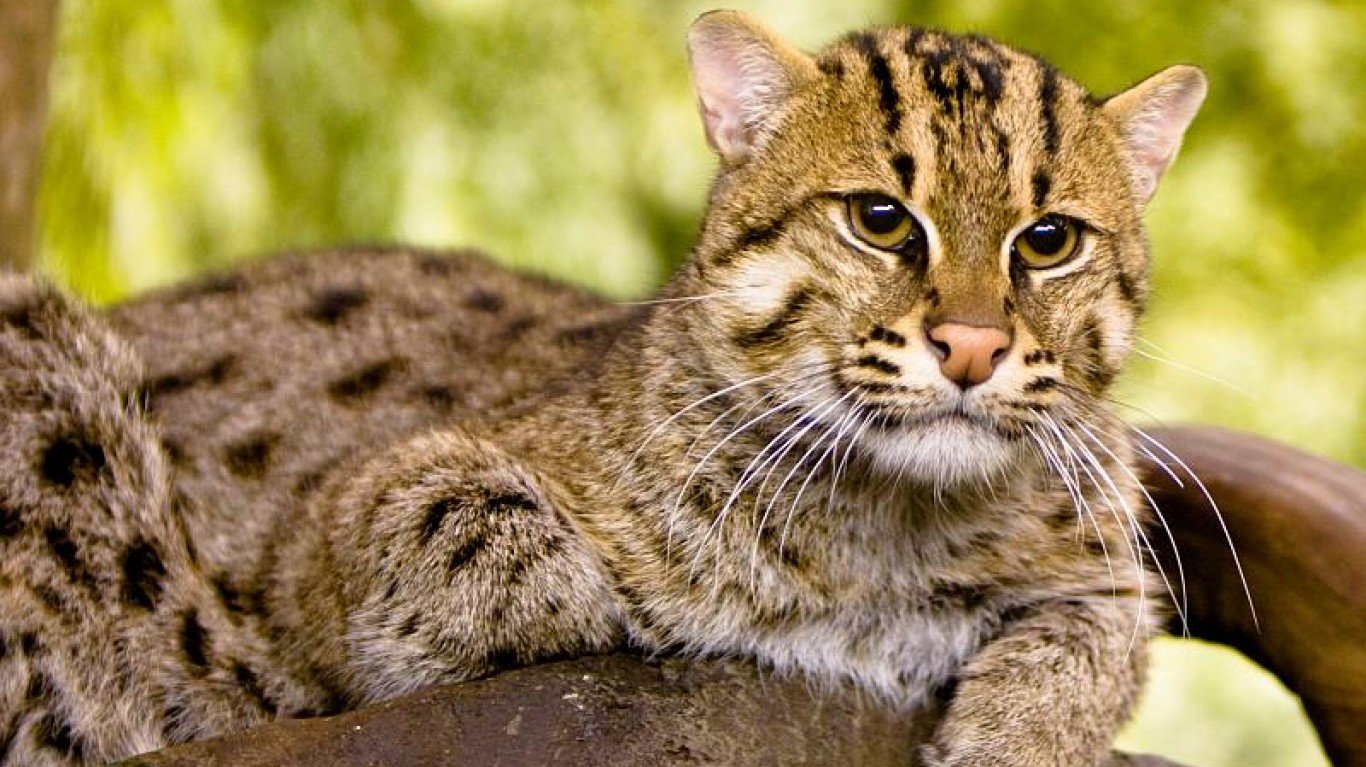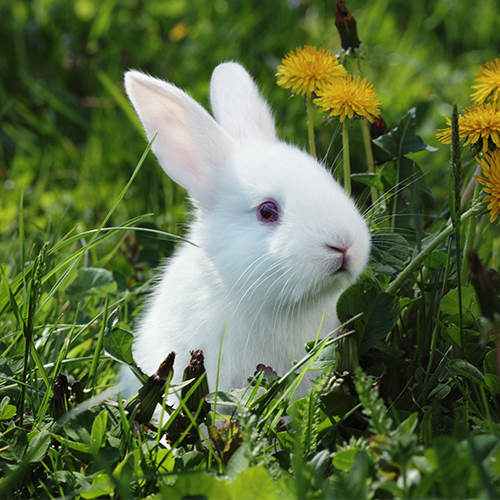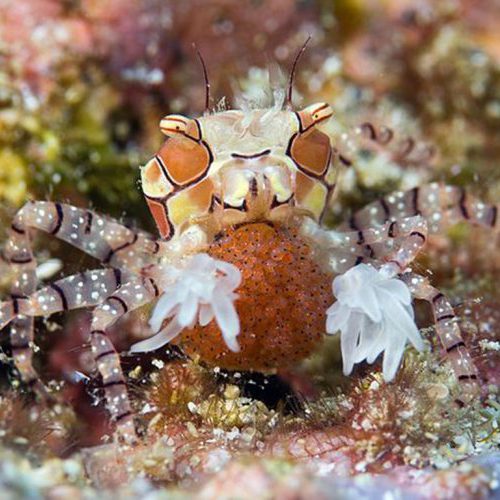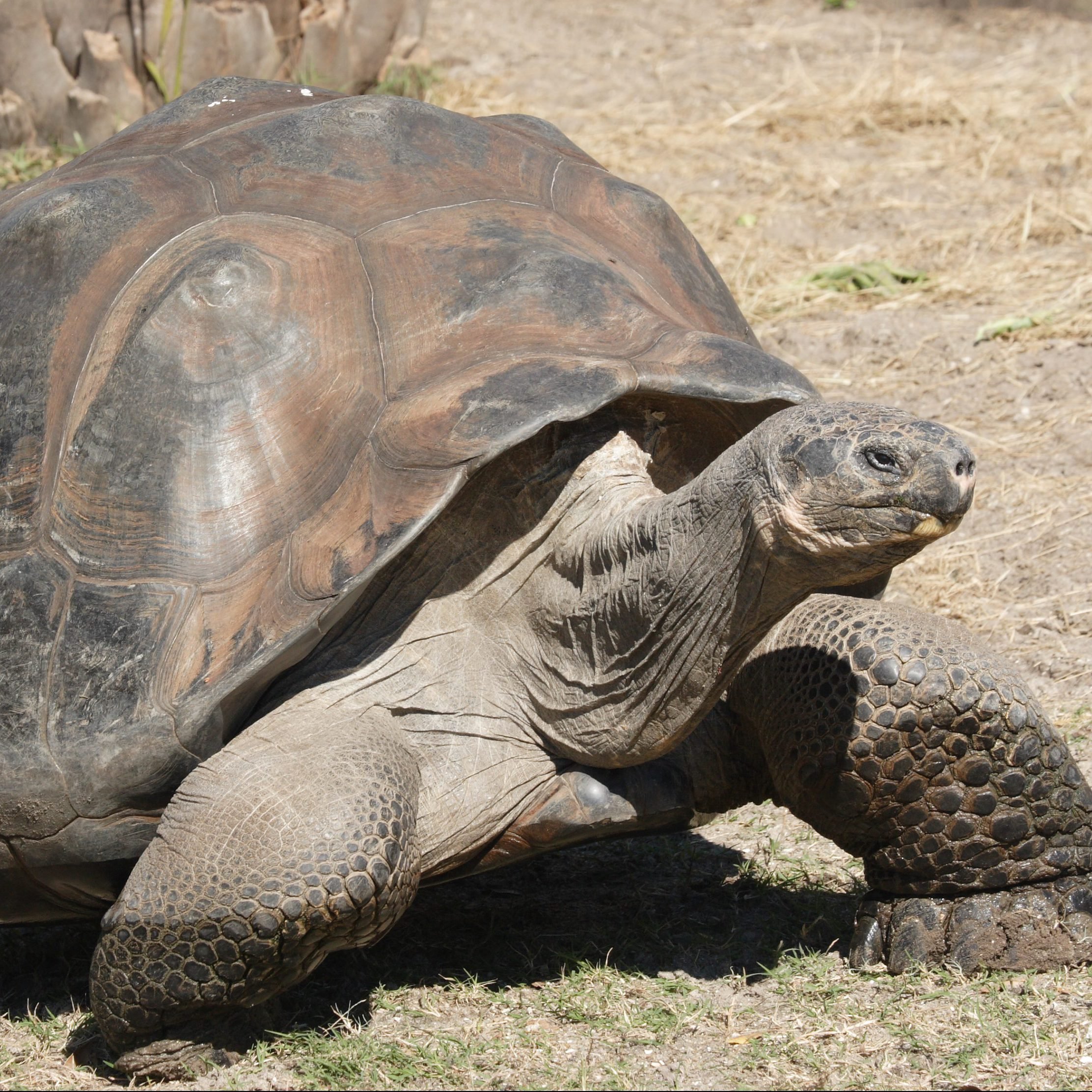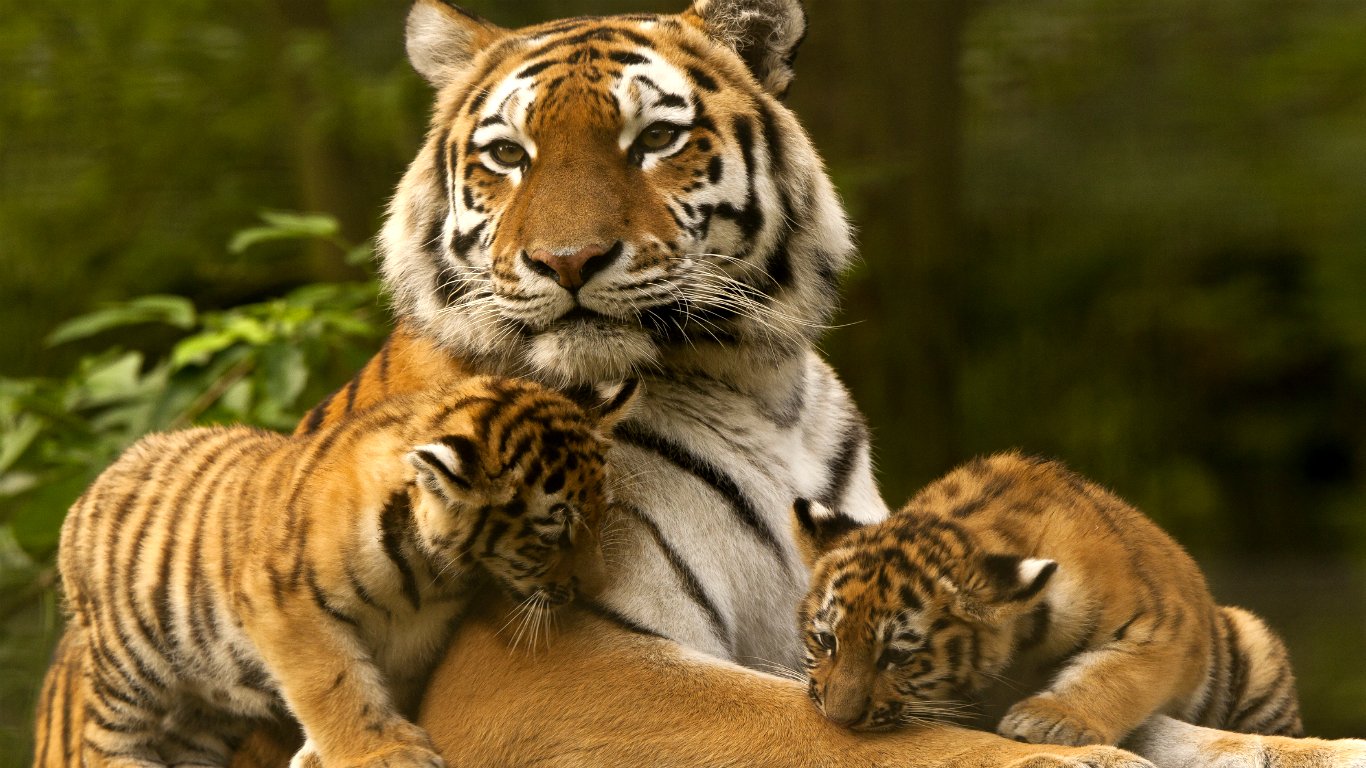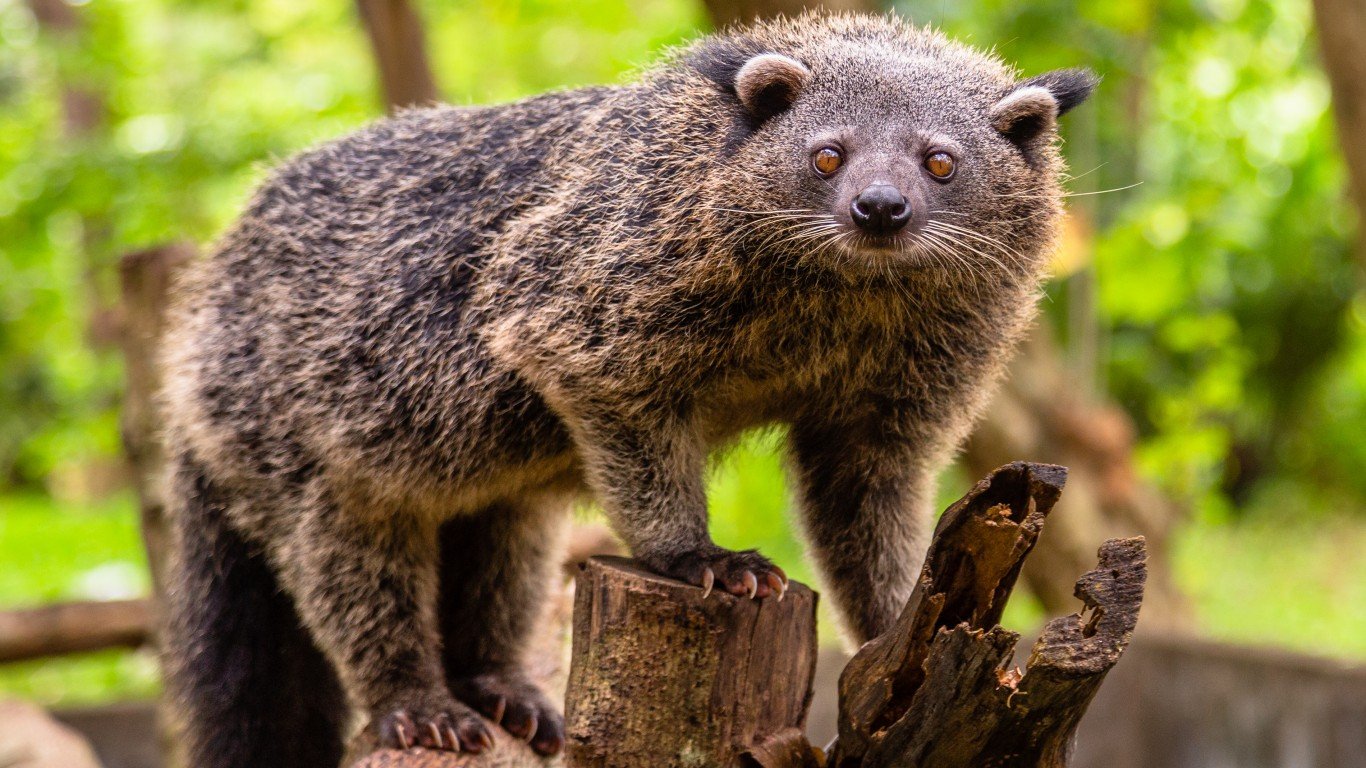

Bubonic plague, avian flu, Ebola, and yellow fever are just a few of the many deadly zoonotic diseases – those caused by pathogens that can spread between animals and humans – that have posed a severe risk to humans. While they’ve always been around, their occurrence has increased over the last century. Modern methods of animal farming, wildlife trade, and deforestation have all dramatically increased contact between humans and animals, and often these animals are confined in unsanitary conditions that make the spread of diseases more likely. (See how COVID fatality rates compare with other diseases.)
It’s almost certain that the novel coronavirus, COVID-19, which has already killed more than six million people worldwide, originally jumped from an animal to a human. It’s also clear that some animals including pet cats and dogs can catch the virus from their infected owners.
According to the World Organization for Animal Health, 645 coronavirus outbreaks have been reported in animals worldwide as of January 31, 2022. This includes domesticated pets, livestock, and wild animals, both in captivity and free. Mammals seem to be more susceptible than birds, as there have been no reported cases in chickens or ducks.
To identify 17 animals that can catch COVID-19, 24/7 Wall St. reviewed a variety of reports issued between July 2020 and December 2021 by the The American Veterinary Medical Association, The World Organization for Animal Health, and the U.S. Department of Agriculture.
While the virus that causes COVID-19 can spread from humans to certain animals during close contact, it is unclear how often the virus spreads between animals. Multiple studies have shown that cat to cat transmission is possible, however. Felids have proven to be particularly susceptible to COVID, and the presence of infected stray cats near mink farms experiencing outbreaks suggests the possibility of interspecies transmission. (These are the most common health problems in cats and how they are treated.)
Click here to see 17 animals that have caught COVID-19
While it’s not known how many pets have died of COVID, anecdotal evidence suggests that the animals usually recover quickly, unless they have pre-existing conditions. Still, the CDC recommends that people with COVID-19 avoid contact with their pets, livestock, and wildlife. According to the agency, recorded instances of potential transmission from an animal to a human are rare.

Cats
Domesticated cats in over a dozen countries have tested positive for COVID-19, and it appears that human-to-cat transmission is fairly common. Cats who live with owners that have COVID are more likely to catch the virus than strays or shelter cats. Cats also appear more susceptible to infection than dogs, and while they can spread the virus to each other, their symptoms are often mild or nonexistent.
[in-text-ad]

Dogs
Although the first dog to be diagnosed with COVID-19 in the U.S. was put down after an extended period of lethargy and breathing difficulties, Buddy the German shepherd likely had lymphoma, and his death has not been attributed to COVID. Most dogs that do catch the virus from their owners have mild symptoms, and those who have died also displayed pre-existing health conditions.
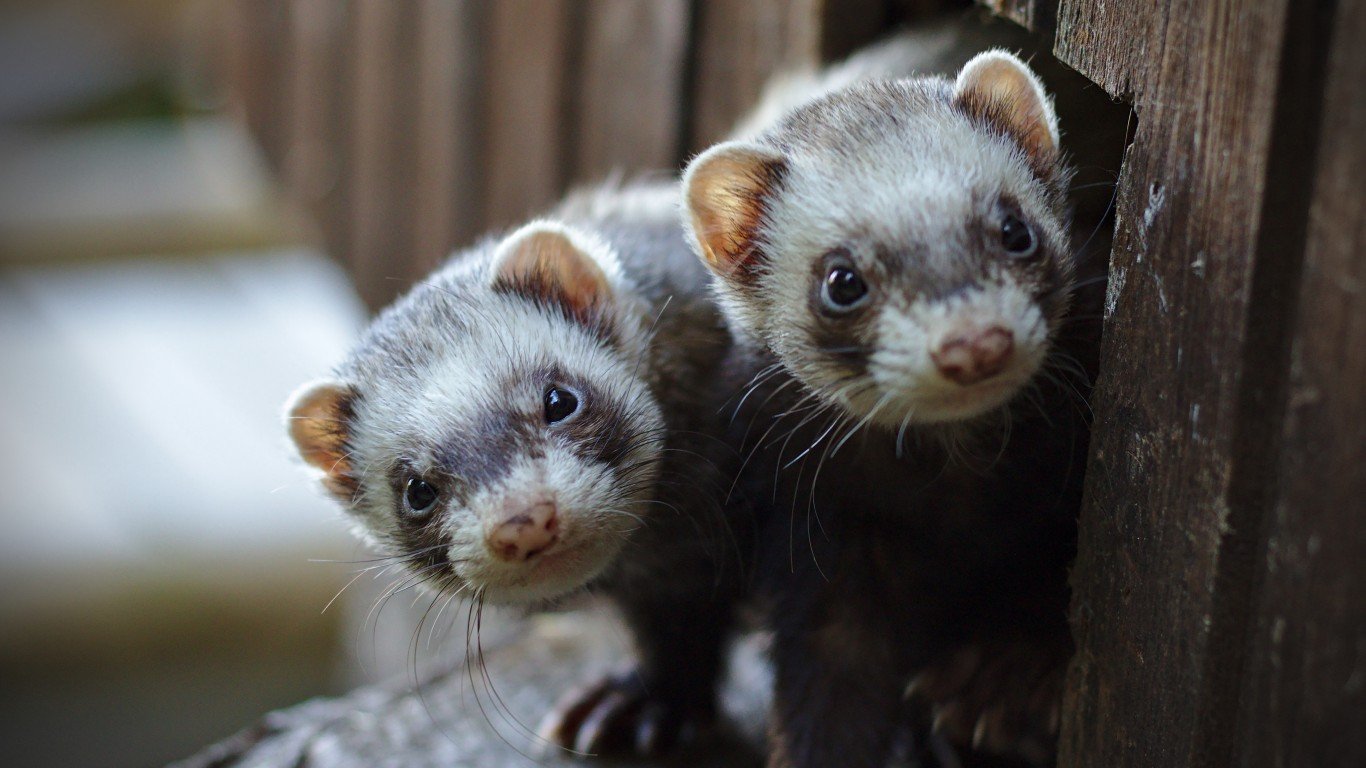
Ferrets
Although a few ferrets in Florida and Slovenia have tested positive for COVID-19, there have been no recorded transmissions between ferrets outside of a laboratory setting. Multiple studies, however, have shown that experimentally infected ferrets can pass the virus to one another.
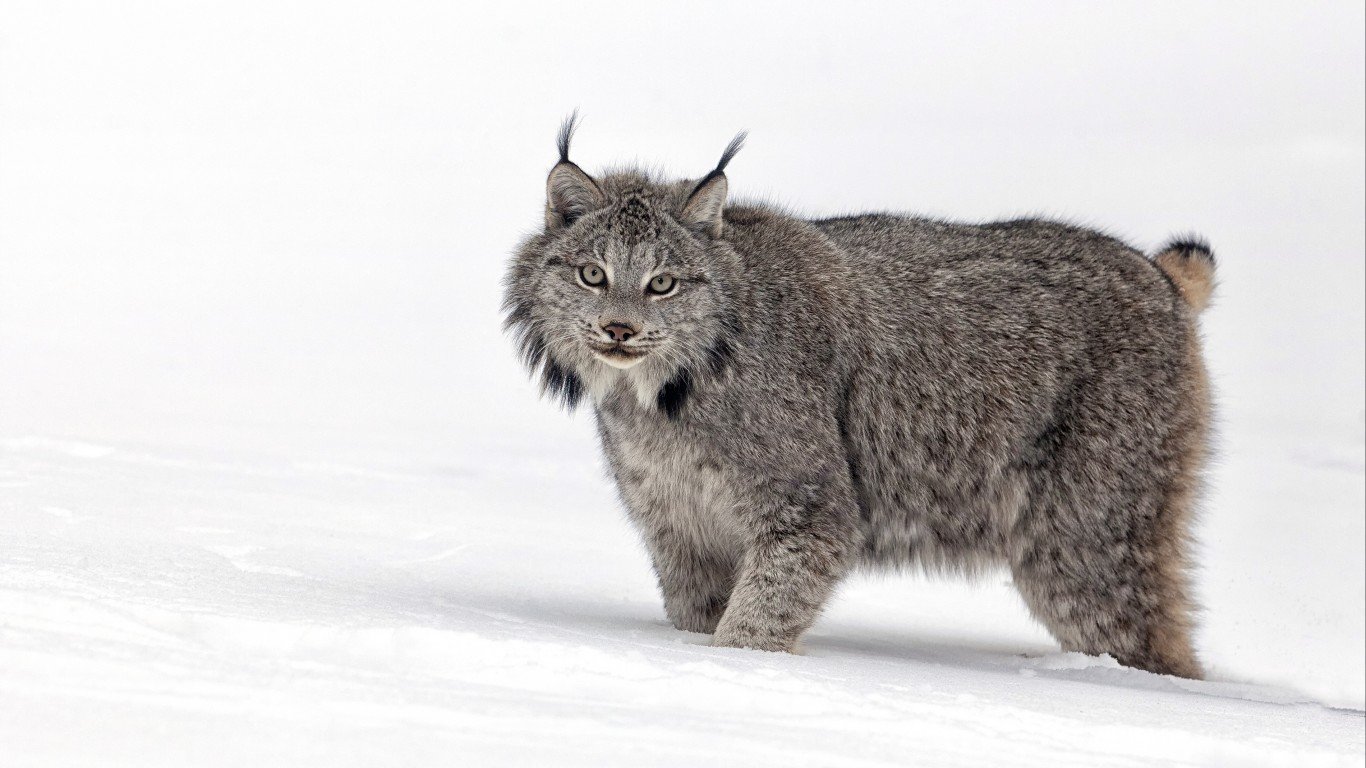
Canada lynxes
A Canada lynx at the Pittsburgh Zoo was diagnosed with COVID-19 in December of 2021, making it the first of its species to be diagnosed in the U.S. The animal was tested after it showed symptoms including lethargy and coughing, and four other lynxes in the enclosure were also tested and monitored. The zoo reported that the lynx did recover and is suspected to have gotten the virus from an asymptomatic employee.
[in-text-ad-2]
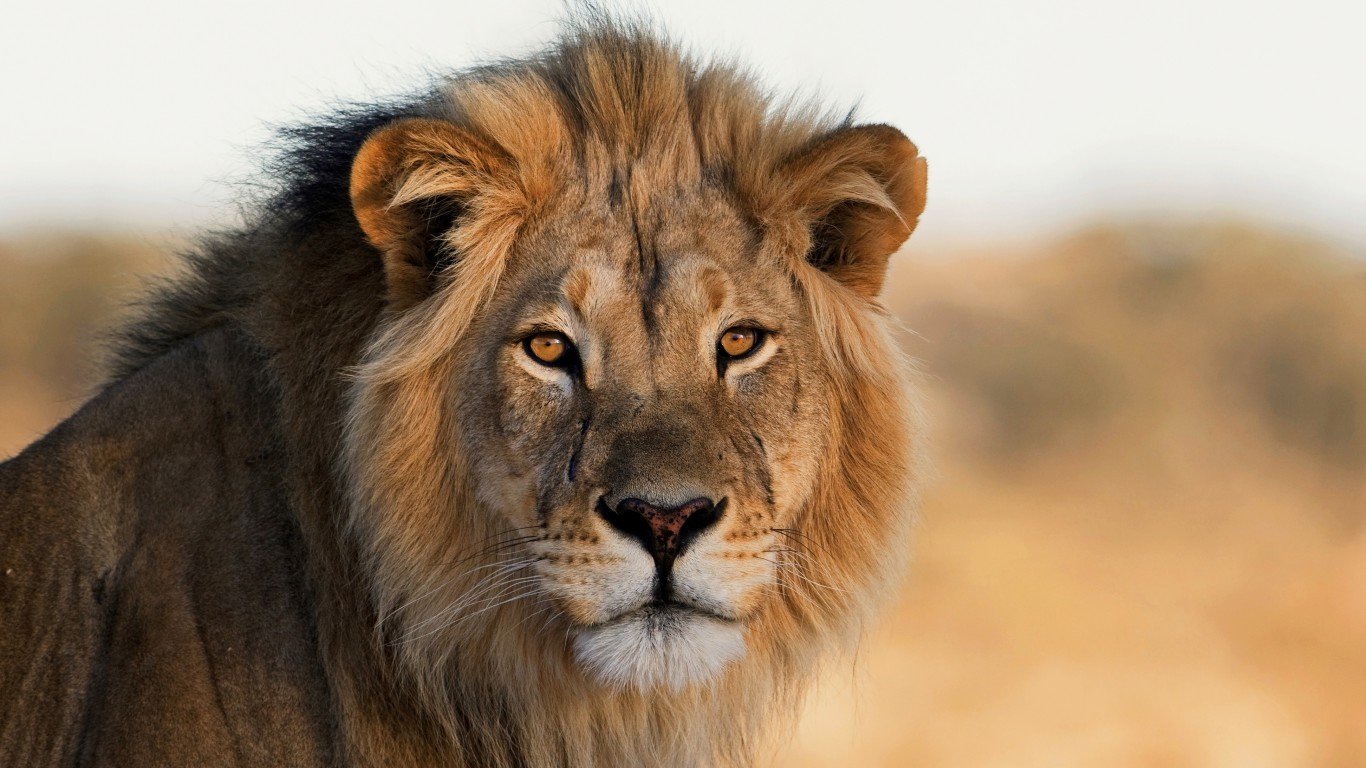
Lions
According to the USDA’s Animal and Plant Health Inspection Services, 51 lions in the U.S. have been diagnosed with COVID-19. Cases among captive lions have also sprouted up in Europe, South America, Asia, and Africa. Lions at multiple zoos showed severe symptoms, with deaths occurring at zoos in Hawaii and India. It is unknown whether lions in shared enclosures transmitted the virus to other lions, but it is assumed in most cases that the lions were infected by an asymptomatic caretaker.
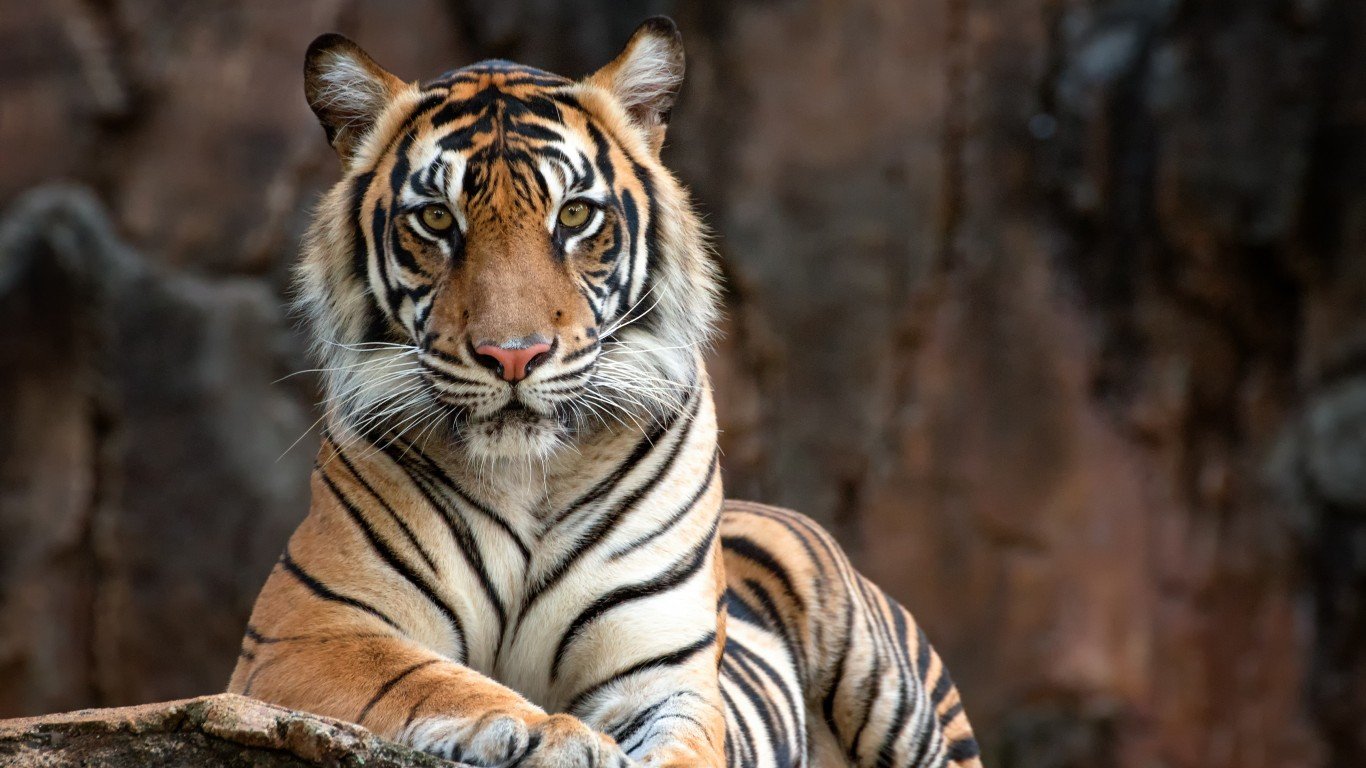
Tigers
Captive tigers in countries around the world have tested positive for COVID-19, including 52 in the U.S. While it is unknown whether tigers in shared enclosures infected one another, the possibility cannot be ruled out. Most made full recoveries but at least one, a 17-year old tiger in Sweden, was euthanized due to failing health during an active infection. In late 2021, many tigers and other susceptible animals began receiving COVID vaccines at U.S. zoos.
[in-text-ad]
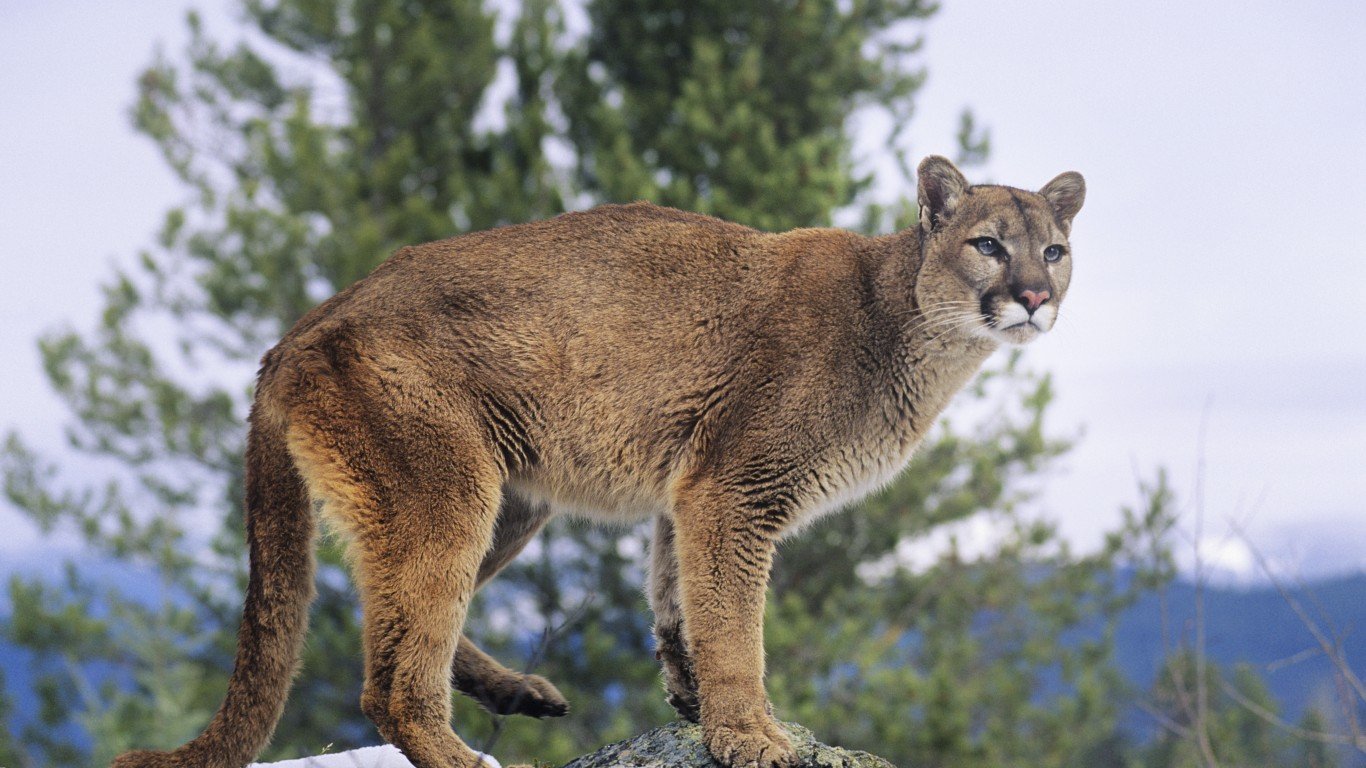
Mountain lions
A handful of captive mountain lions around the world have contracted COVID-19. The first documented case in the U.S. was at a Texas wild animal facility. Multiple animals at the facility including the puma and a tiger tested positive but made full recoveries. Pumas in South Africa and Argentina have also turned up positive.
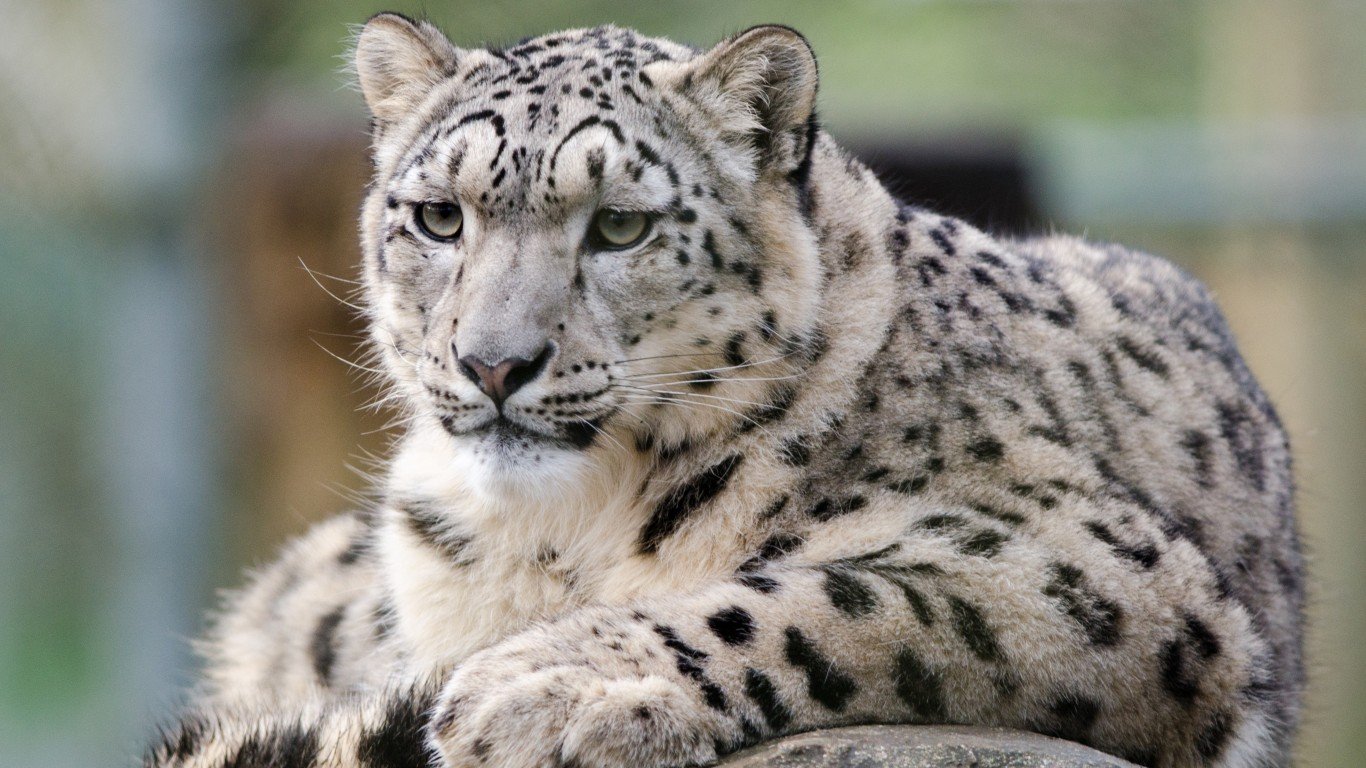
Snow leopards
Over a dozen snow leopards in the U.S. have been diagnosed with COVID-19. One at the Sioux Falls Zoo in South Dakota is suspected to have died due to infection, while three at the Lincoln Children’s Zoo in Nebraska died after testing positive for the virus. Captive snow leopards in Kentucky and San Diego have recovered from their infections.
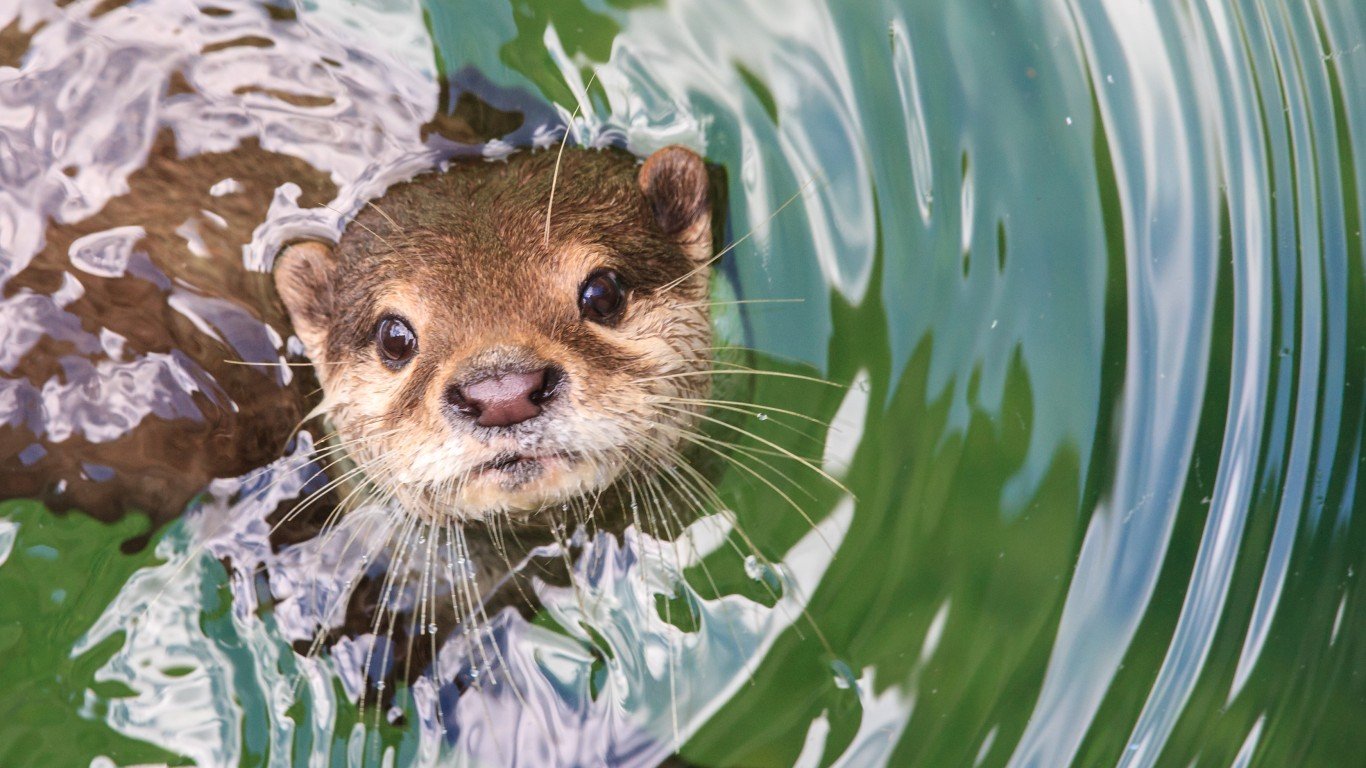
Otters
Seven Asian small-clawed Asian at the Georgia Aquarium in Atlanta were the first known otters to become infected with COVID-19. While all of them survived, the case created concern about endangered sea otters possibly becoming infected. In November of 2021, the Monterey Bay Aquarium began vaccinating sea otters in their facility. Otters are mustelids, and closely related to mink, who are highly susceptible to COVID and known to transmit the virus.
[in-text-ad-2]
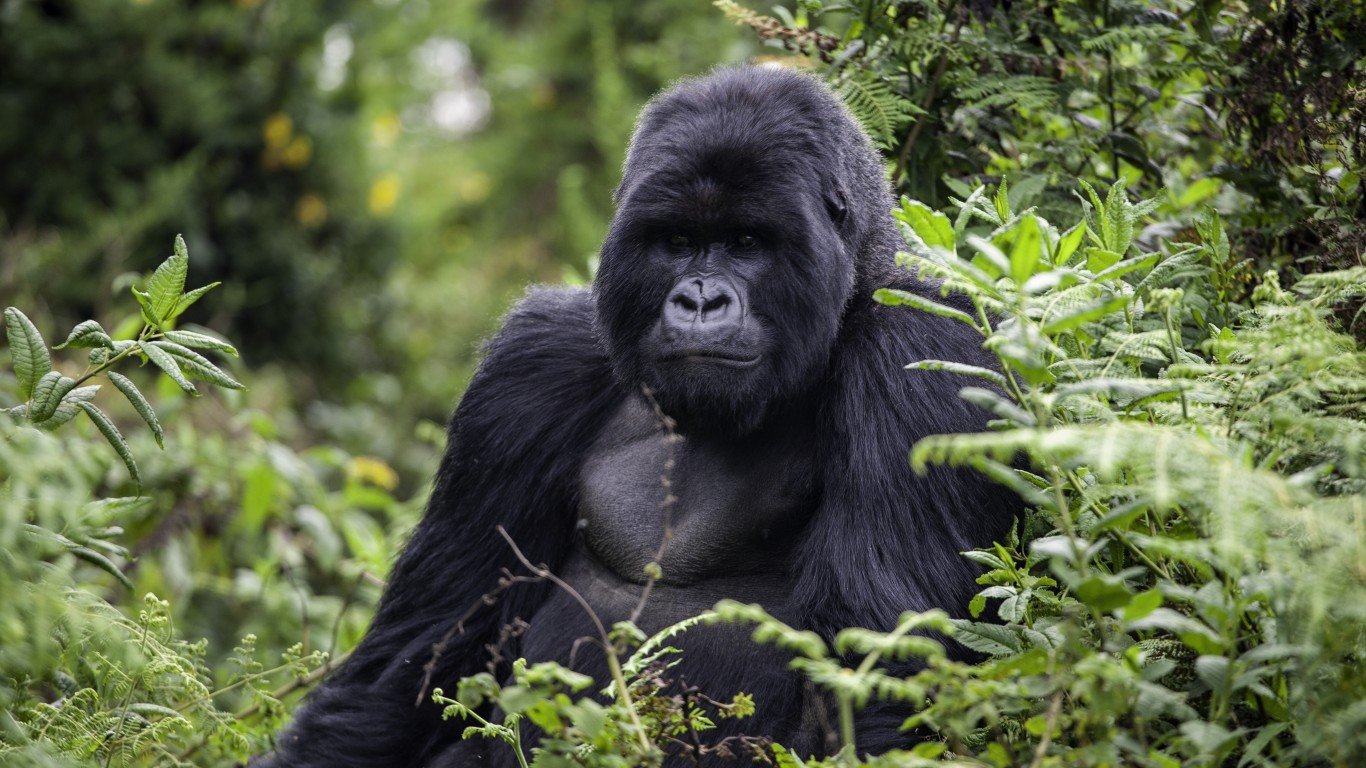
Gorillas
The world’s first non-human primates with confirmed cases of COVID-19 were three western lowland gorillas at the San Diego Zoo who tested positive in January of 2021 after a few displayed symptoms. This led to preemptive testing of gorillas at other facilities, and the next month five gorillas in Dallas tested positive but were asymptomatic. Another outbreak at the Atlanta Zoo saw 13 gorillas test positive. So far, there have been no reported outbreaks among wild gorillas.
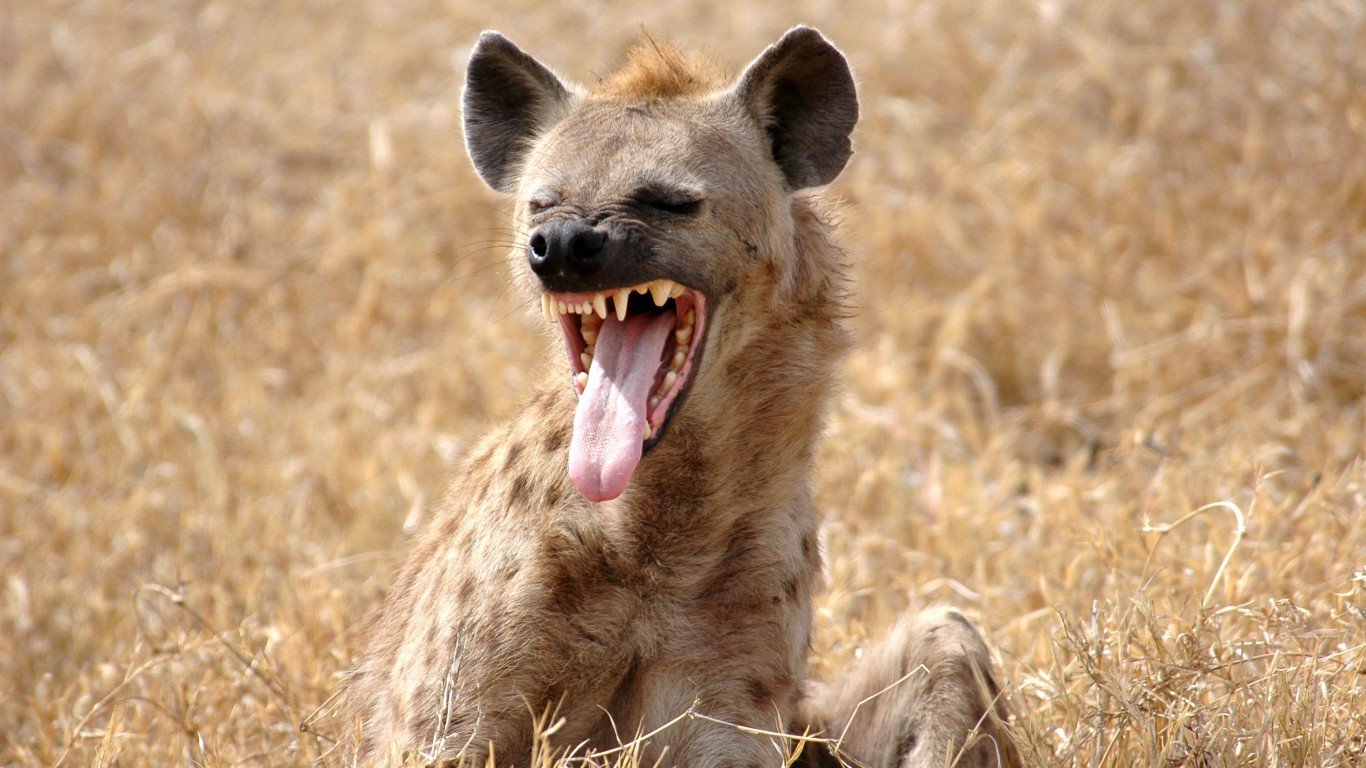
Spotted hyenas
In November of 2021, two spotted hyenas at the Denver Zoo tested positive for COVID-19 during a mass screening performed after some of the zoo’s lions began exhibiting symptoms. They are the only known hyenas to have become infected, and it is not clear whether they caught the virus from a staff member or if the virus spread from the 11 lions and two tigers at the zoo who also tested positive.
[in-text-ad]
Fishing Cats
After a tiger at an Illinois zoo began displaying COVID-like symptoms, tests on other animals at the facility revealed that a fishing cat, a small feline native to Southeast Asia, had also contracted the virus. That individual remains the only known fishing cat in the world to have tested positive for COVID.

Binturong
Along with the fishing cat who contacted COVID-19 at an Illinois zoo, a binturong (a cat-like carnivore related to a civet) at the zoo also tested positive for the virus. It was the first animal in the Viverrid family known to have contracted the novel coronavirus, although its cousins, civets, are known to be susceptible to coronaviruses and were implicated in the 2002 SARS outbreak.
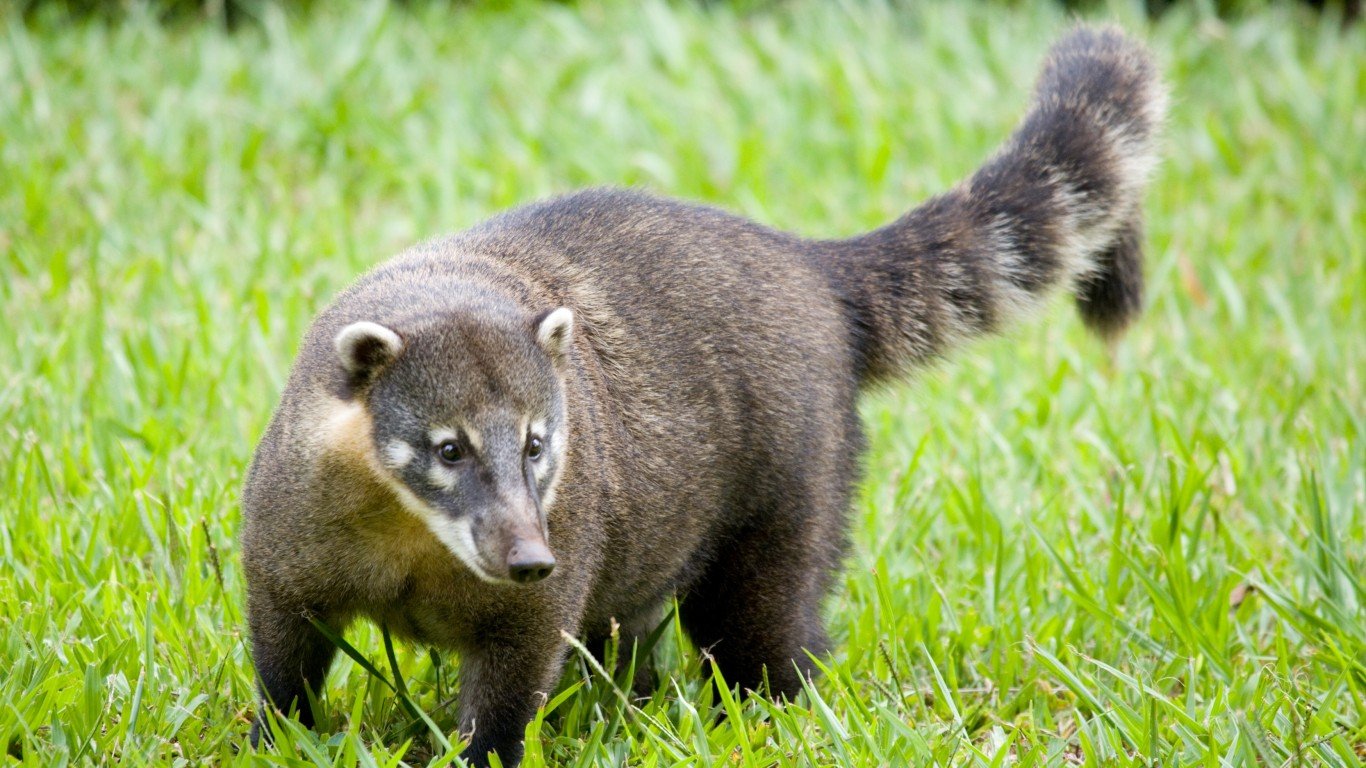
Coati
A single South American coati (a relative of the raccoon and the ringtail) contracted COVID-19 at the Brookfield Zoo near Chicago, where individuals of other novel species including a fishing cat and binturong tested positive, along with a lion, a tiger, and two snow leopards. The zoo subsequently vaccinated its high risk animals.
[in-text-ad-2]
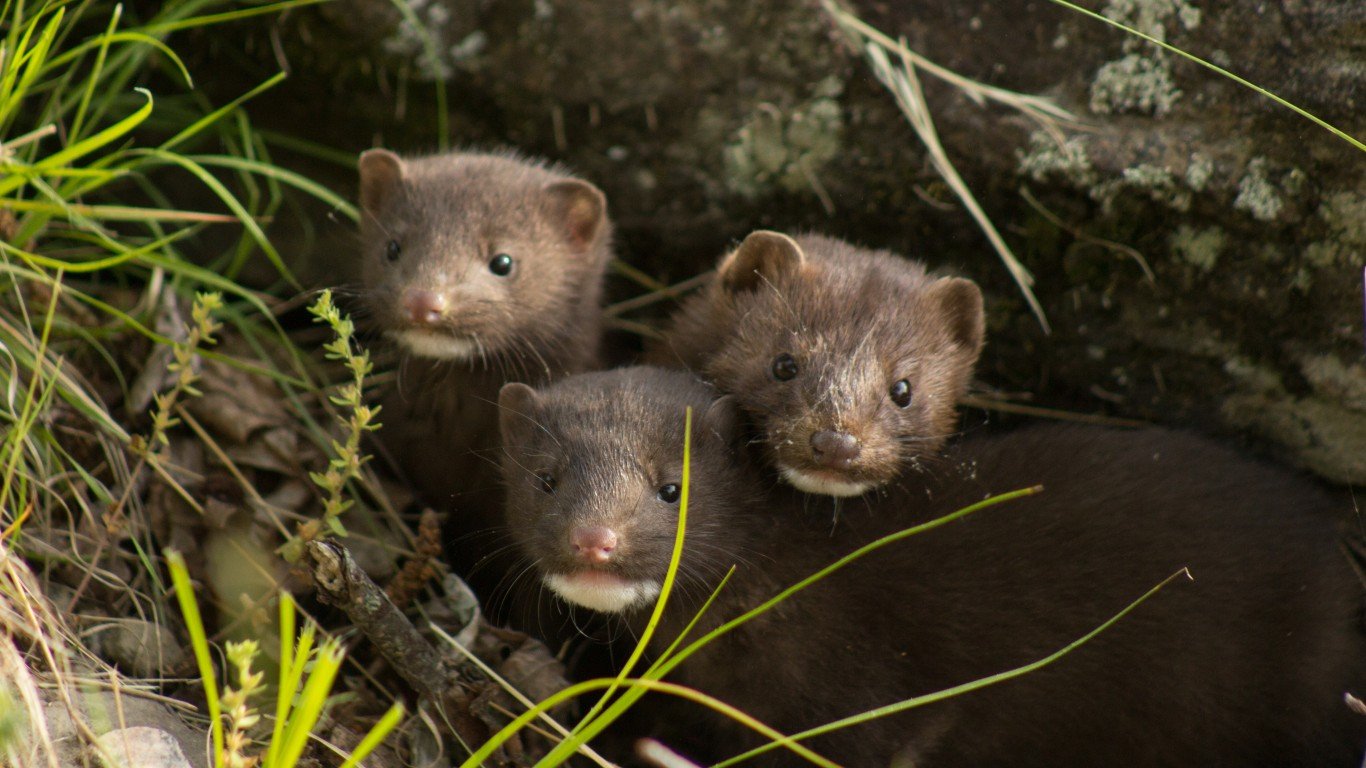
Mink
Infected mink have been reported in numerous countries across Europe as well as in North America. Studies performed after coronavirus outbreaks on multiple mink farms in Denmark in late 2020 showed that the coronavirus can spread not only from humans to minks but from minks back to humans. Concerns over the possibility of dangerous mutations led Danish farms to cull 17 million of the animals, who were being raised for their fur.
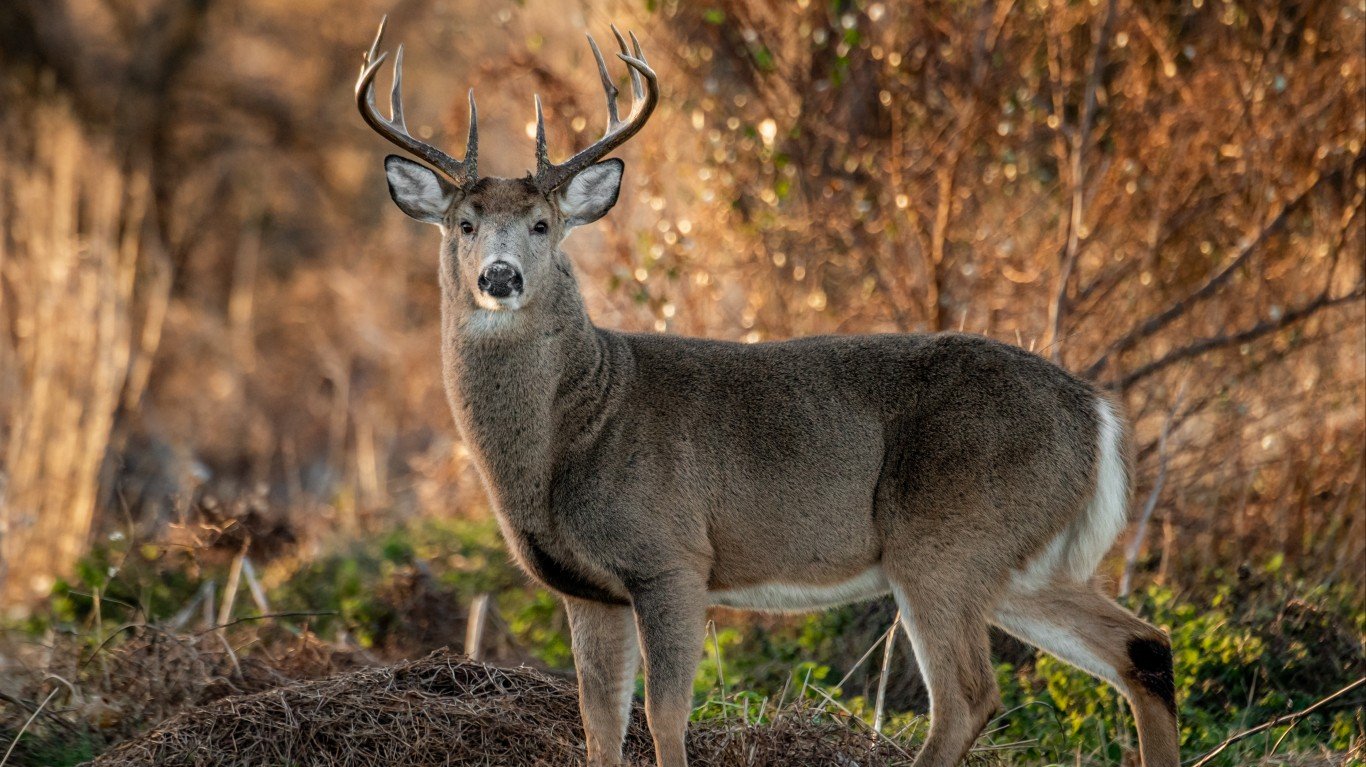
White-tailed deer
Studies in wild deer populations across the U.S. have shown that deer have contracted COVID-19 infections from humans and spread the virus to other deer. Samples taken in the state of New York showed infection rates of almost 20% in the white-tailed deer population, while samples from Ohio were over 30% positive for coronavirus antibodies. A recent study suggests that a person in Canada who had close contact with deer in Ontario may be the first person to have gotten COVID from an infected deer.
[in-text-ad]
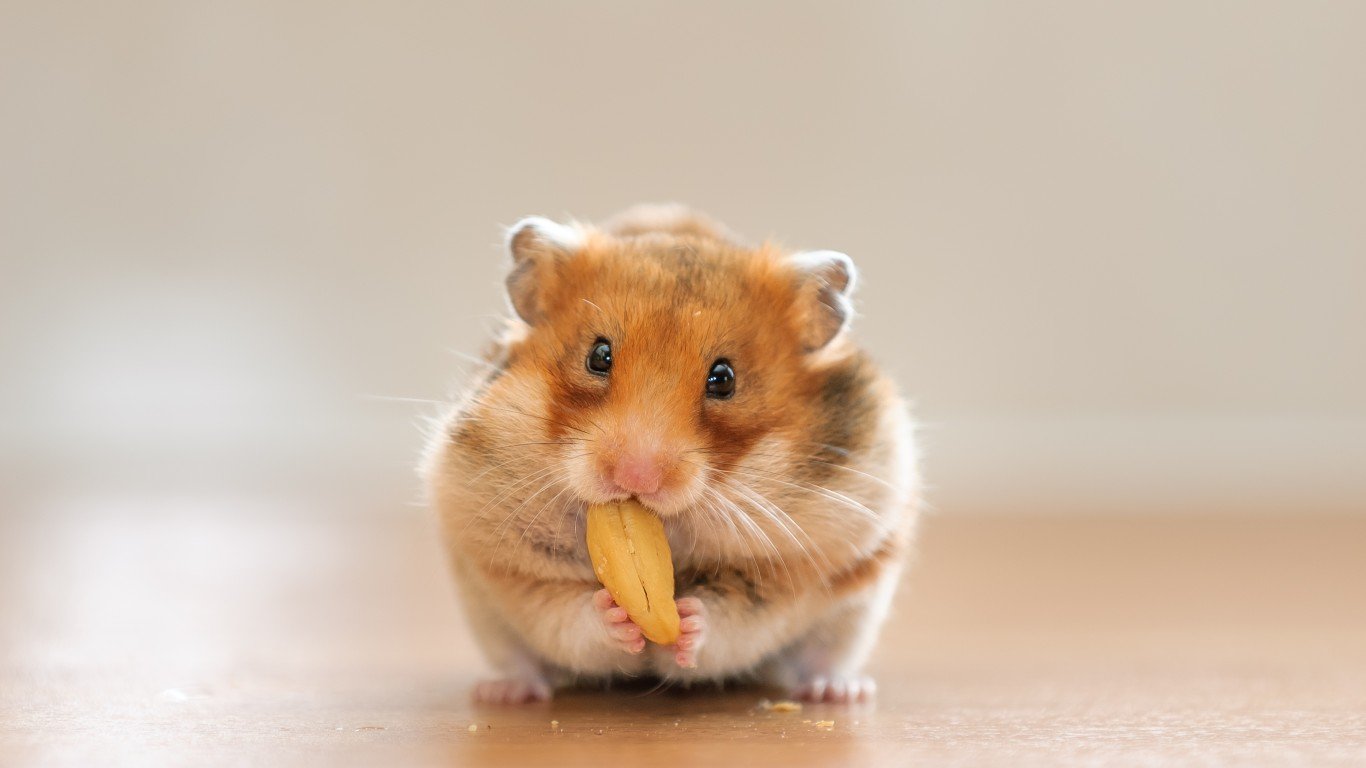
Hamsters
A January 2022 COVID-19 outbreak in Hong Kong has been traced to a pet store, where imported hamsters who carried a variation of the Delta variant never before seen in Hong Kong apparently transmitted the virus to a pet shop worker. The infection spread to at least 50 people and led to the culling of over 2,000 hamsters in the city.
Sponsored: Attention Savvy Investors: Speak to 3 Financial Experts – FREE
Ever wanted an extra set of eyes on an investment you’re considering? Now you can speak with up to 3 financial experts in your area for FREE. By simply
clicking here you can begin to match with financial professionals who can help guide you through the financial decisions you’re making. And the best part? The first conversation with them is free.
Click here to match with up to 3 financial pros who would be excited to help you make financial decisions.
Thank you for reading! Have some feedback for us?
Contact the 24/7 Wall St. editorial team.
